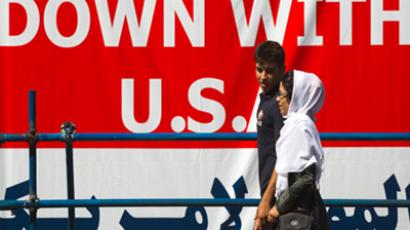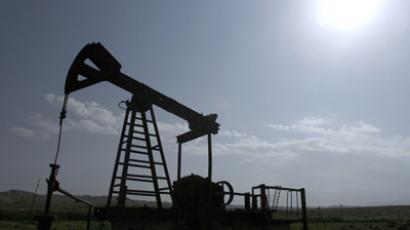Petrol reaches new high as UK hit by Iran ban
Petrol in Britain has hit a new record high, increasing 10% year on year. That’s after Tehran blocked oil exports to the country as part of its reaction to financial sanctions from the West.
A liter of diesel will now cost 143.05 British pence, or $2.25, just above the previous peak of 143.04 pence a liter reached during the Libyan conflict last May.And the people at the pumps are already paying the price. Miranda Schunke from Green Flag Automobile association warns that the continued price rise will affect all other consumers as well.“It’s a disaster for motorists, and not only are they being stung month after month now by these fuel price rises, but there’s also a concern that this is going to spread to the cost of everyday items such as food, because those transportation costs to get those foods to store will be passed onto businesses and then the consumer,” she said.The British themselves say this could put people off buying petrol, as well as off driving.Britain’s imports of Iranian oil are minor. The country bought just 11 thousand barrels from Tehran last year, not even 1% of its total imports. But the global oil market was earlier threatened by Iran’s vow to block the Strait of Hormuz – a vital oil trading route. A fall in production in South Sudan and Yemen also contributed to the global price rise.For Iran, more expensive petrol is a way to compensate for reduced volumes of oil trade, Julian Lee, Senior Energy Analyst at the Centre for Global Energy Studies, told RT.“It’s seeking to benefit from maintaining its exports but earning a higher price for each barrel that it sells,” he said.Earlier on Monday Iran said it would stop supplies of oil to Great Britain and France, basically pre-empting an embargo from the West. In late December, EU states agreed to stop buying black gold from the Islamic Republic, and blocked most banking operations with the state last week. By means of such measures the West hopes to bring Iran to the negotiating table over its nuclear program.But so long as the prices are rising, it may not be Iran to be the first to buckle in what’s become a dangerous game of brinkmanship. Experts predict the ongoing tensions could add 25% to oil prices by Easter.














